Startling Bali reality that can’t be ignored
Bali conjures images of white sandy beaches, crystal clear waters, expansive rice fields – but there’s a confronting reality in many areas that can’t be ignored.
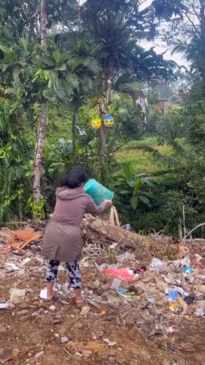
For many tourists, Bali conjurs images of white sandy beaches, crystal clear waters, expansive rice fields and lushes, dense jungles – but the reality in many areas is little different.
The popular island is undoubtedly a hotspot for tourists, however, it has long battled a waste problem that can’t be ignored.
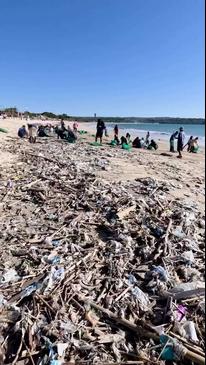
Throughout the months of October to March during Indonesia’s wet season, you will find rubbish often dumped on Bali’s Kuta, Seminyak, Legian and Jimbaran beaches daily.
It’s an annual phenomenon that sees plastic, garbage, and waste from shipping vessels often carried into land by strong winds, high tides, and driving rains.
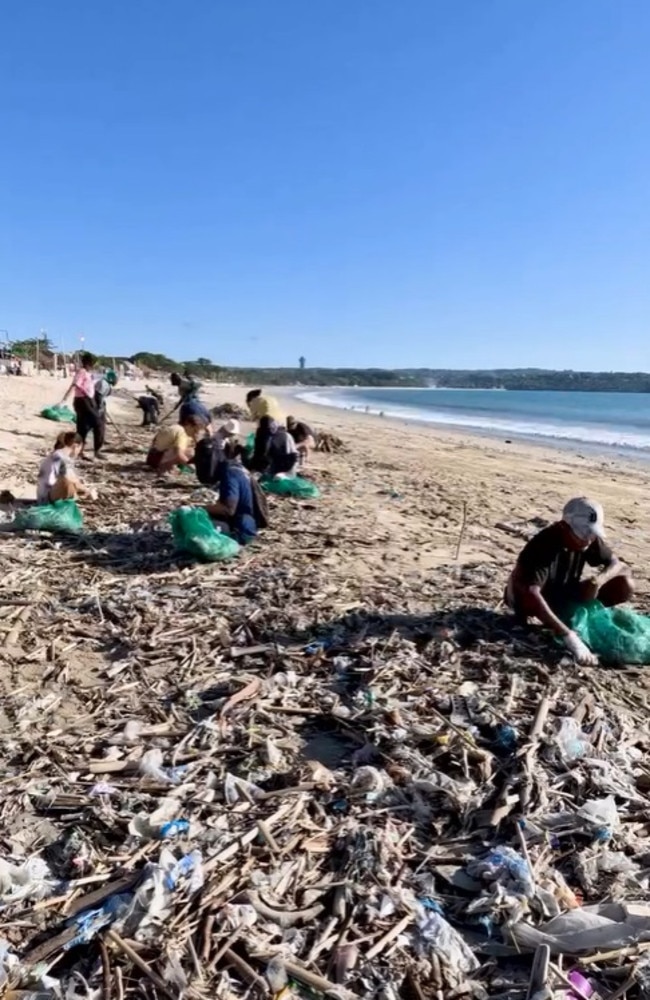
The island’s open landfills are also a huge problem. As they become fuller they put pressure on local waste management operations.
Rubbish is then spilt into waterways and dumped in unofficial landfill sites, often on the edges of some of Bali’s most beautiful natural landscapes.
Officials have implemented solutions, and while some have had an impact, more needs to be done.
As such, the Bali Provincial Government signed a $US225 million — $A340 million — partnership with a Chinese environmental company set to change the way waste is managed across the island.
CN Weiming will start at 1500 tonnes of waste per day in the first phase and move to 2250 in the second phase.
It will do this through waste incineration technology that produces high-temperature flue gas to produce steam and, in most cases, drive power plants. The exhaust gas is purified and disposed of in accordance with China’s AAA standards.
The company, which is also developing a ‘high-nickel matte nickel-containing metal’ project in Maluku Province, said is committed to constructing a waste power plant in Bali to China’s AAA standards, according to The Bali Sun.
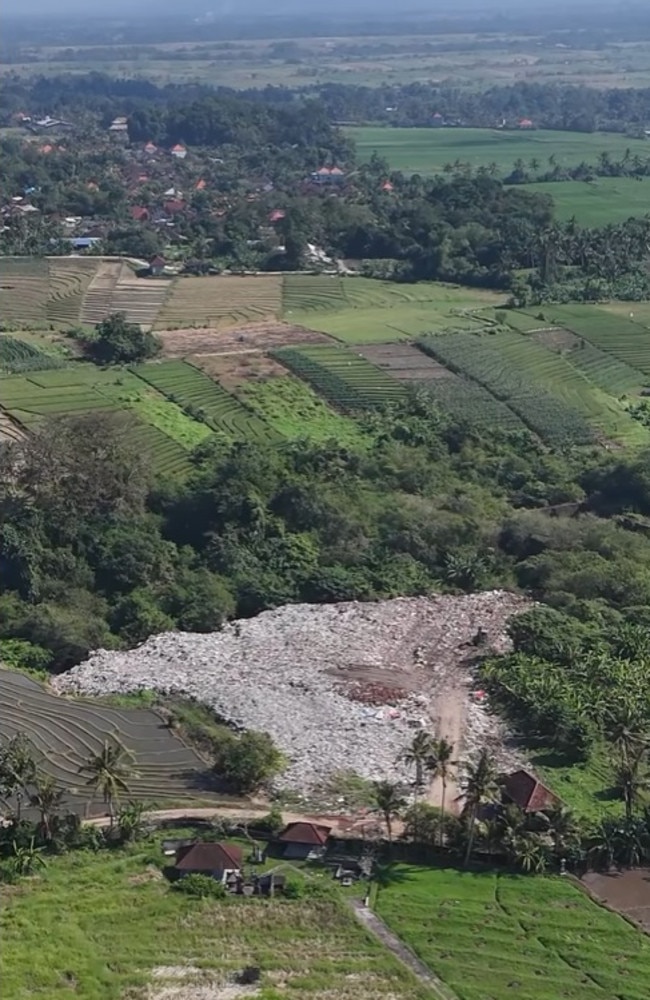
The multimillion-dollar deal was signed off in early September by the acting governor of Bali, Sang Made Mahendra Jaya.
Speaking to reporters following the signing of the agreement, the President of Weiming Environment Protection Group, WuLiang Cheng, said, “This waste treatment project uses the BOO (Build-Operate-Own) model with a franchise period of 40 years. After the franchise period ends, the project assets remain the property of Weiming Environmental Protection.”
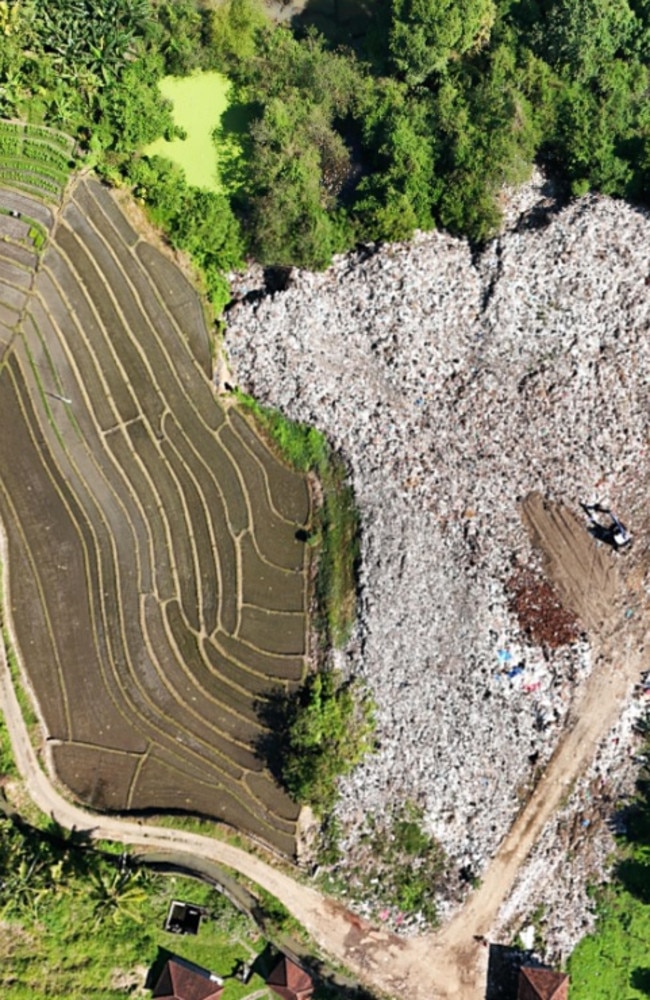
According to The Bali Sun, initial plans suggest that the new project will be based at the Temesi TPA in Gianyar Regency, a central location to one day manage the majority of Bali’s inorganic waste.
At present, Temesi TPA receives around four tonnes of waste per day, whereas the largest landfill in Bali, the Suwung TPA, receives upwards of 200 truckloads of mixed waste per day, the publication reports.
One Aussie man found the waste situation so confronting, he took matters into his own hands.
Philip Major, the owner of Aussie clean tech start-up Cyclion, was sent a heartbreaking photo of a dead turtle, sadly one of many wildlife impacted by the polluted waters on the island.
He has plans to turn all the household waste in Bali, which often ends in waterways, into energy — a multimillion-dollar project that he’s already started in the Philippines.
It’s a venture that he’s put his life savings into as he’s determined to make a difference.
“I am moved every time I see large piles of rubbish emitting dangerous gases and damaging the health of families with young children,” Mr Major, from Brisbane, told news.com.au in December last year.
“Also, when I see beautiful beaches littered with rubbish or dead wildlife that have died from eating plastics.
“These are the things that have given me the determination to push through the challenges to see real solutions to make a difference in whatever way I can.”
Mr Major’s business converts household rubbish, including plastics, to fuel or electricity in an environmentally friendly way.
“Unlike traditional waste to energy, we do not burn the rubbish but instead soak the rubbish in special liquid salts to break it down to oil,” he said.
Environmental NGOs like Mudfish No Plastic and Sungai Watch have also gone to great lengths to tackle illegal landfills and beach plastic and create new systems to recycle and repurpose inorganic waste.
Gary Bencheghib, a French filmmaker living in Indonesia, is part of Sungai Watch, a team dedicated to “protecting waterways in Indonesia”.
He shared a recent clip of his team removing 11,300kg of plastic in a waterway in just three days.
Since establishing the not-for-profit organisation in October 2020, Sungai Watch, comprised of a team of 83 full-time members have collected a total of 868,582kg of waste, according to its 2022 Impact Report.
Indonesia is among the worst contributors to plastic pollution, with 200,000 tonnes of plastic washing into the ocean, according to a study published by the journal Nature Communications in 2017.






